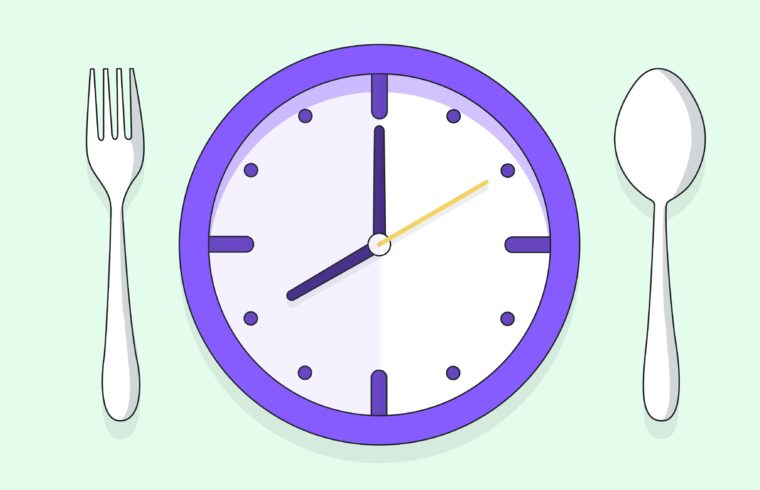
Maybe work keeps you up late or your eating schedule gets thrown off and you need, well, something. What’s OK to eat before bed?Īgain, the best-case scenario is that you don’t eat anyth i ng before bed. But it’s also mindless eating,” says Supan.

“At night is when we eat the unhealthy stuff - chips, cookies, ice cream - as part of our nighttime relaxation routine. “But our insulin resistance kicks up at night.” The result is that those extra calories coming from your late-night meal or snack are stored as fat while you sleep instead of being burned throughout the day.Īnother reason that eating late is bad is because that’s when we tend to make less healthy decisions about what we consume. “That’s to help fuel our bodies, get us moving and get us through the day,” explains Supan. Your body is more sensitive in the morning on purpose. It’s all about the way your body adjusts its insulin sensitivity. “When you eat late at night, you’re going against your body’s circadian rhythm,” she says. No, you shouldn’t eat before bed, says Supan, and one reason is because of the way your body functions. Supan outlines the good and the bad about eating before bed and what’s OK to eat if you have to. But, she adds, that’s not always realistic. The truth is, you should avoid eating before bed, says registered dietitian Alexis Supan, RD. We do not endorse non-Cleveland Clinic products or services. Advertising on our site helps support our mission. Because of unique individual needs, the reader should consult their physician to determine the appropriateness of the information for the reader’s situation.Cleveland Clinic is a non-profit academic medical center.

After all, a good night’s sleep is all-essential for a healthy body.ĭisclaimer: The information included at this site is for educational purposes only and is not intended to be a substitute for medical treatment by a healthcare professional. Eat two hours before your bedtime and keep it light to avoid health issues. To live a healthy life, you may need to make some changes to your daily routine for good health. Examples include –Ī tip – Playing relaxing music at a slow volume before you sleep can help you fall asleep faster. You can have foods that are easily digestible and low in calories. In case you find yourself hungry a few hours after having your meal, it is recommended that you have a light meal for dinner to satiate your hunger pangs. Apart from that, spicy food can often cause indigestion and acidity, which can be yet another reason that prevents a good night’s sleep. Your body generally reduces its internal temperature during sleep and if this spicy food keeps your body temperature higher, it gives signals to your brain that this may not be the right time to sleep. This can lead to a rise in body temperatures that tend to keep you awake longer.
/what-are-the-symptoms-of-sleep-deprivation-3015161_color4-5b42c4ddc9e77c00374089b8.png)
You should also avoid eating food that is too spicy before going to bed at night. On the other hand, chocolates contain caffeine which increases brain activity, thereby preventing you from falling asleep. Magnesium is needed to help you fall asleep and with a lack of magnesium, sugary foods can keep you awake at night. This is because your body uses up a micronutrient like Magnesium to assimilate sugar into the body. Moreover, you should also avoid eating sugary foods at night before going to bed. Sugary drinks, sugary desserts, candies and cereals should not be consumed before bedtime or for dinner.

However, experts recommended not to follow this ritual for the following reasons Many people suffering from insomnia or sleep disorders are of the opinion that having a few glasses of wine or whiskey makes them fall asleep faster. Also, make sure you avoid consuming foods that contribute to insomnia. Foods to Avoid Before Going to BedĬertain foods, when consumed right before bedtime, can block adenosine – a chemical that helps us fall asleep naturally. You must not indulge in unhealthy snacking before going to sleep, as it will harm you in ways more than one. Midnight snacking is a sure-fire way to increase calorie intake and gain weight. Many people develop a habit of binging on unhealthy snacks late in the night – chips, doughnuts, cookies and aerated beverages. These contain high levels of tryptophan – a substance that your body metabolizes into melatonin and serotonin. The Complex Relationship between Sleep and FoodĬertain food items such as turkey, fatty fish, almonds, etc. This provides ample time for digestion and the contents in your stomach to move into the small intestine – and reduces the likelihood of various digestive problem symptoms.īesides, allowing a couple of hours to elapse before lying down after your least meal can lower your chances of having sleep disorders and gaining weight. Usually, it is advised that you wait for about 2-3 hours before going to bed once you have had your dinner.


 0 kommentar(er)
0 kommentar(er)
